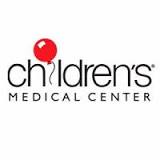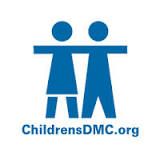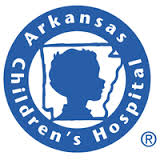Home Away From Home - Quality of Life Surveys
| Status: | Recruiting |
|---|---|
| Conditions: | Blood Cancer, Hematology |
| Therapuetic Areas: | Hematology, Oncology |
| Healthy: | No |
| Age Range: | Any |
| Updated: | 2/24/2019 |
| Start Date: | September 2016 |
| End Date: | December 2019 |
| Contact: | Richard Aplenc, MD, PhD |
| Email: | aplenc@chop.edu |
Home or Away From Home: Comparing Patient and Caregiver Reported Quality of Life (QoL) and Other Patient-centered Outcomes for Inpatient Versus Outpatient Management of Neutropenia in Children With AML
Treatment for pediatric acute myeloid leukemia (AML) involves intensive chemotherapy regimens
that result in periods of profound neutropenia leaving patients susceptible to severe
infectious complications. Infectious complications are the leading cause of treatment related
mortality among AML patients, but there are little clinical data to inform whether management
of neutropenia post AML chemotherapy should occur in an outpatient or inpatient setting.
Further, no studies have been conducted that assess the impact of neutropenia management
strategy on the quality of life of pediatric patients with AML and their caregivers.
that result in periods of profound neutropenia leaving patients susceptible to severe
infectious complications. Infectious complications are the leading cause of treatment related
mortality among AML patients, but there are little clinical data to inform whether management
of neutropenia post AML chemotherapy should occur in an outpatient or inpatient setting.
Further, no studies have been conducted that assess the impact of neutropenia management
strategy on the quality of life of pediatric patients with AML and their caregivers.
This is a prospective observational cohort study, where the primary objective of this study
is to compare patient and caregiver quality of life and other patient-centered outcomes for
inpatient versus outpatient management of neutropenia in children with AML or MDS receiving
standard intensive AML frontline chemotherapy.
Local study investigators (pediatric oncologists and study coordinators) at each of the
fifteen participating pediatric institutions will communicate on a weekly basis with their
inpatient leukemia service to identify AML or MDS patients potentially eligible for study
enrollment. Once identified, study personnel will review each patient for study eligibility
criteria. Three visits with the patient and their caregivers will occur: a screening visit,
initial survey visit, and a follow-up visit.
Screening Visit: The eligibility criteria for participation will be confirmed prior to
approaching for consent. Eligible patients interested in the study will be approached for
consent at any time from AML/MDS diagnosis through last day of chemotherapy in the treatment
course under study. In some cases, the patient's caregivers may not be present in the
hospital to provide consent. In these cases, study personnel will obtain verbal consent from
the caregivers and child assent (if appropriate).
Visit 1 will occur prior to the last day of chemotherapy administration in the course. This
visit will include:
- 2 Brief demographic surveys to capture covariates unavailable in the medical record
- Baseline health-related quality of life (HRQOL) surveys
- A baseline financial toxicity assessment
Surveys will be administered via paper or a smart device and will last a total of 15-30
minutes per respondent. In the case that the child is 5 years of age or older, the child
self-report and parent proxy-report scales will be separately administered to the child and
caregiver, respectively. If the child is under 5 years of age, only the parent-proxy version
will be administered. Only the caregiver completes the baseline financial toxicity
assessment. We will provide a $25 gift card to each child-parent dyad upon completion of the
baseline surveys
Visit 2 will occur within the period after absolute neutrophil count recovery and ideally
prior to the start of the subsequent course of chemotherapy, but no later than the last day
of chemotherapy in that next treatment course. This visit will include:
- Follow-up HRQOL surveys
- Patient-centered outcome survey developed previously from qualitative interviews of AML
patients and their caregivers
- A follow-up financial toxicity assessment
Surveys will be administered via paper or a smart device and will last a total of 15-30
minutes per respondent. In the case that the child is 5 years of age or older, the child
self-report and parent proxy-report scales will be administered to the child and caregiver,
respectively. If the child is under 5 years of age, only the parent-proxy version will be
administered. The follow-up financial toxicity assessment and the patient-centered outcome
survey are completed by the caregiver only. We will provide a $25 gift card to each
child-parent dyad upon completion of the follow-up surveys.
is to compare patient and caregiver quality of life and other patient-centered outcomes for
inpatient versus outpatient management of neutropenia in children with AML or MDS receiving
standard intensive AML frontline chemotherapy.
Local study investigators (pediatric oncologists and study coordinators) at each of the
fifteen participating pediatric institutions will communicate on a weekly basis with their
inpatient leukemia service to identify AML or MDS patients potentially eligible for study
enrollment. Once identified, study personnel will review each patient for study eligibility
criteria. Three visits with the patient and their caregivers will occur: a screening visit,
initial survey visit, and a follow-up visit.
Screening Visit: The eligibility criteria for participation will be confirmed prior to
approaching for consent. Eligible patients interested in the study will be approached for
consent at any time from AML/MDS diagnosis through last day of chemotherapy in the treatment
course under study. In some cases, the patient's caregivers may not be present in the
hospital to provide consent. In these cases, study personnel will obtain verbal consent from
the caregivers and child assent (if appropriate).
Visit 1 will occur prior to the last day of chemotherapy administration in the course. This
visit will include:
- 2 Brief demographic surveys to capture covariates unavailable in the medical record
- Baseline health-related quality of life (HRQOL) surveys
- A baseline financial toxicity assessment
Surveys will be administered via paper or a smart device and will last a total of 15-30
minutes per respondent. In the case that the child is 5 years of age or older, the child
self-report and parent proxy-report scales will be separately administered to the child and
caregiver, respectively. If the child is under 5 years of age, only the parent-proxy version
will be administered. Only the caregiver completes the baseline financial toxicity
assessment. We will provide a $25 gift card to each child-parent dyad upon completion of the
baseline surveys
Visit 2 will occur within the period after absolute neutrophil count recovery and ideally
prior to the start of the subsequent course of chemotherapy, but no later than the last day
of chemotherapy in that next treatment course. This visit will include:
- Follow-up HRQOL surveys
- Patient-centered outcome survey developed previously from qualitative interviews of AML
patients and their caregivers
- A follow-up financial toxicity assessment
Surveys will be administered via paper or a smart device and will last a total of 15-30
minutes per respondent. In the case that the child is 5 years of age or older, the child
self-report and parent proxy-report scales will be administered to the child and caregiver,
respectively. If the child is under 5 years of age, only the parent-proxy version will be
administered. The follow-up financial toxicity assessment and the patient-centered outcome
survey are completed by the caregiver only. We will provide a $25 gift card to each
child-parent dyad upon completion of the follow-up surveys.
Inclusion Criteria:
1. Participants will be enrolled as patient-caregiver dyads. The patient must be:
- Less than 19 years of age at diagnosis.
- Patient is English or Spanish literate.
- Receiving chemotherapy for AML between June 1, 2016 and December 31, 2019.
2. Participants will be enrolled as patient-caregiver dyads. The caregiver must be:
- English or Spanish literate.
- The legal guardian of a patient receiving chemotherapy for AML between June 1,
2016 and December 31, 2019.
3. Parental/caregiver informed consent and, if appropriate, child assent.
Exclusion Criteria:
1. Patients being treated for relapsed AML
2. Patients with Acute Promyelocytic Leukemia (APML)
3. Patients undergoing stem cell transplant (SCT)
4. Patients receiving reduced intensity frontline chemotherapy
We found this trial at
15
sites
Click here to add this to my saved trials
St. Jude Children's Research Hospital St. Jude is unlike any other pediatric treatment and research...
Click here to add this to my saved trials
South 34th Street
Philadelphia, Pennsylvania 19104
Philadelphia, Pennsylvania 19104
215-590-1000

Phone: 267-426-7252
Children's Hospital of Philadelphia Since its start in 1855 as the nation's first hospital devoted...
Click here to add this to my saved trials
Children's Healthcare of Atlanta Whether treating a toddler in an emergency or supporting a teen...
Click here to add this to my saved trials
Children's Hospital Colorado At Children's Hospital Colorado, we see more, treat more and heal more...
Click here to add this to my saved trials
Boston, Massachusetts 02115
Phone: 617-632-4688
Click here to add this to my saved trials
225 E Chicago Ave
Chicago, Illinois 60611
Chicago, Illinois 60611
(312) 227-4000

Ann & Robert H. Lurie Children's Hospital of Chicago Ann & Robert H. Lurie Children
Click here to add this to my saved trials
Children's Medical Center of Dallas Children's Medical Center is private, not-for-profit, and is the fifth-largest...
Click here to add this to my saved trials
Children's Hospital of Michigan Since 1886, the Children's Hospital of Michigan has been dedicated to...
Click here to add this to my saved trials
Texas Children's Hospital Texas Children's Hospital, located in Houston, Texas, is a not-for-profit organization whose...
Click here to add this to my saved trials
Arkansas Children's Hospital Arkansas Children's Hospital (ACH) is the only pediatric medical center in Arkansas...
Click here to add this to my saved trials
Click here to add this to my saved trials
Click here to add this to my saved trials
Seattle Children's Hospital Seattle Children’s Hospital specializes in meeting the unique physical, emotional and developmental...
Click here to add this to my saved trials
Click here to add this to my saved trials







